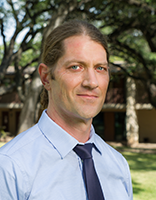I’m not sure if one can win a prize for guessing the Oxford English Dictionary’s word of the year. Just in case that’s not a thing, I want some virtual fist bumps for calling it this time. The word of 2016 is “post-truth.” And I called it.
No, seriously. I promise I did. Cross my heart.
Not long ago, “truth” was not a word embraced in humanities departments around the world. Those of us who cut our chops in grad school reading Derrida, Levinas, Foucault, Irigaray, and other Continental Europeans who survived the horrors and terrors of 20th century totalitarianism, learned to treat the word as ripe for critique. After all, it’s humans who use it, and as soon as one person or one group declares something true in any absolute sense, he or she or they have lifted themselves above the perspectivalism of human life, assumed a super-human posture, and in doing so insulated their “truth” from human challenge while marginalizing or silencing any who might be compelled to challenge it. This is the definition of ideology.
Even “reason,” that tool in which the philosophers of the Enlightenment placed such confidence, was suspect, since it turns out to be less a single tool than a large and cluttered workshop. There are methods of reasoning, but as soon as we appeal to “reason alone,” as Kant did, we risk the ideological move of blinding ourselves to all the ways that our pursuit of truth might alienate or marginalize others, or insulate itself from surprise and challenge. We are like remodelers who discover that enough caulk can cover every crack, gap, and imperfection in whatever it is we’re constructing. (OK, transparency alert: that analogy comes from personal experience.)
So what are we to say now, in post-truth’s greatest year yet? Did the anti-totalitarian philosophers get what they wanted? The O.E.D identifies the term as describing contexts in which “objective facts are less influential in shaping public opinion than appeals to emotion and personal belief.” Surely this isn’t what Foucault had in mind when he pointed out the way that truth always migrates toward power? Emotion and conviction can be collectors of power just as easily—more easily, perhaps—than reason and truth. Post-truth begins to look like a new kind of absolutism, but one that is now even more insulated from the challenges of history, evidence, and the various tools in the reasoner’s workshop.
We are no doubt in for a great deal of analysis on the strangeness of 2016 and all the language we’ve consumed, including the ways that “fake news” outlets and social media screeds have become the Twinkies of the post-truth appetite.
As a theologian, I’m interested in how users of Christian language might participate in this conversation. We have, after all, this very strange story of an ordinary-looking Palestinian Jew of uninspiring birth in a negligible town, standing in front of a crowd and saying, “I am the truth.” And we believe him. What is that about? As a friend of mine put it once in a sermon, the Incarnation is about God risking miscommunication. In Christ, God speaks an entirely divine language in an entirely human way. John Calvin says that the teachings of Christ are eternal truth accommodated for non-eternal ears. So even Christ’s teachings are “totally true” only by participating in the eternal truthfulness of God. It goes without saying then that our words can aspire only to this participation, and never transcend our humanness to speak in the eternal dialect.
So maybe that leaves us with something to say, both to those who collect power by proclaiming unquestioned truth and to those who collect it by circumventing truth entirely in favor of personal conviction and inarticulate feeling. God’s eternal truth for the world is exactly as resilient and fragile as a baby born in an unsanitized barn. It needs our care and attention, because for whatever reason, it pleased God to risk miscommunication: to rely on human beings to discern and proclaim (and re-discern and be confused by) the truth. It will show up in our conversations and our built environment in complex, partial, unfinished ways. That will make it tempting for us to think we’re finished looking for the truth, either because we think we’ve found it or because we no longer consider it worth the finding.
But in the spirit of Augustine, who said, “If you’ve understood it then it’s not God,” I’d like to suggest that if we’re through searching and arguing and building, then we haven’t yet spoken the truth. Or, if you like, in the spirit of Fox Mulder: the truth is out there. Way out there. Not, though, as a weird fact that we’ll eventually discover, but as a truthfulness that we can move toward and share in.
Trying to tell the truth, without assuming we have it or know it entirely, may be the most radical thing a Christian can do in a post-truth world.
What are some ways you might speak truthfully in an age that seems resistant to accountability? How might our words bear witness to the “humble truth” of the Incarnation?


